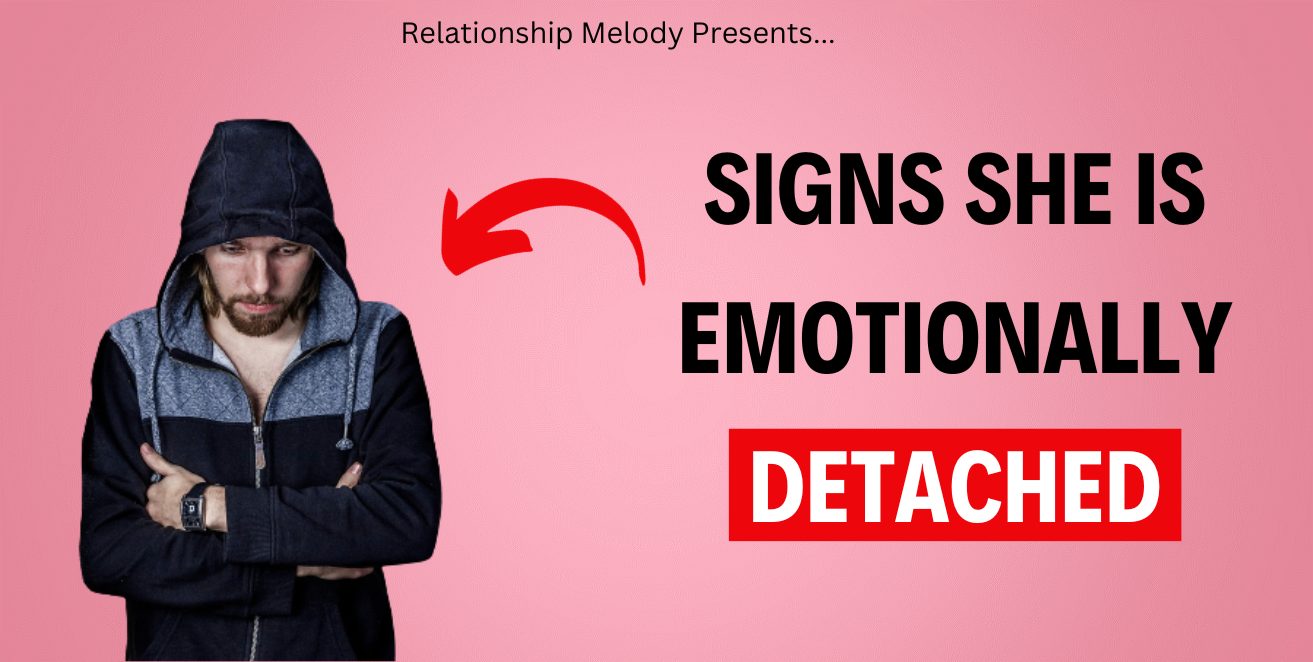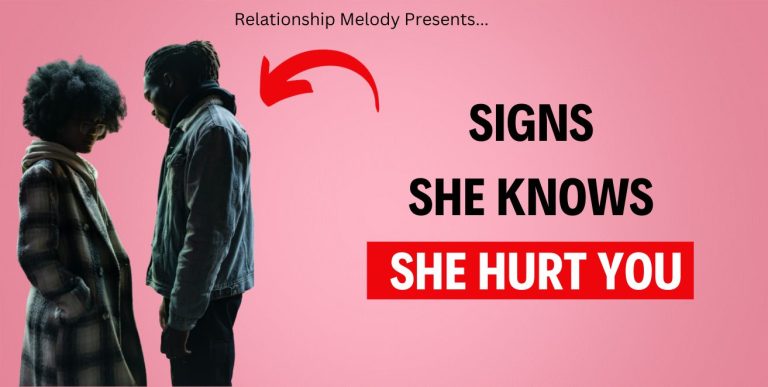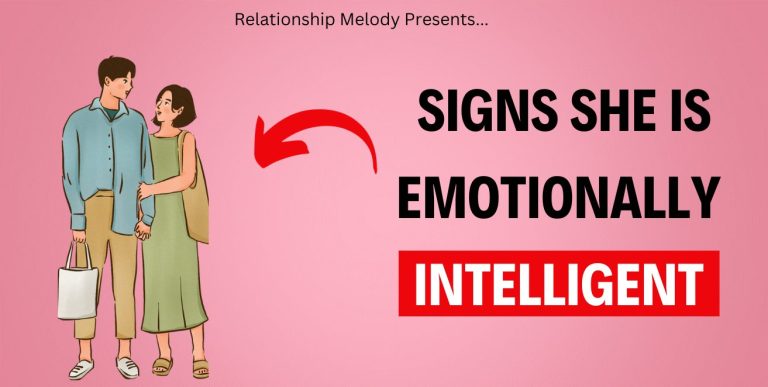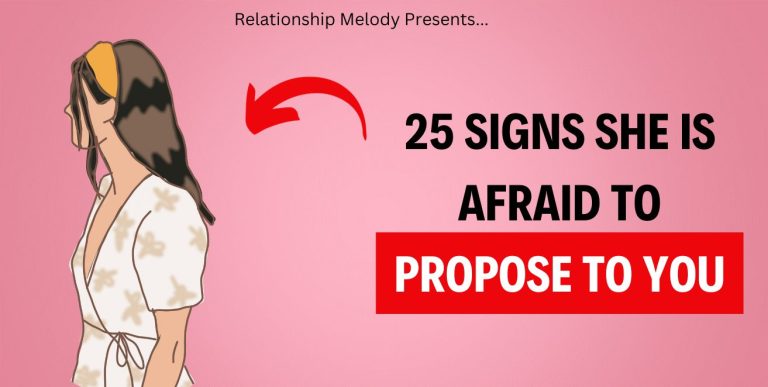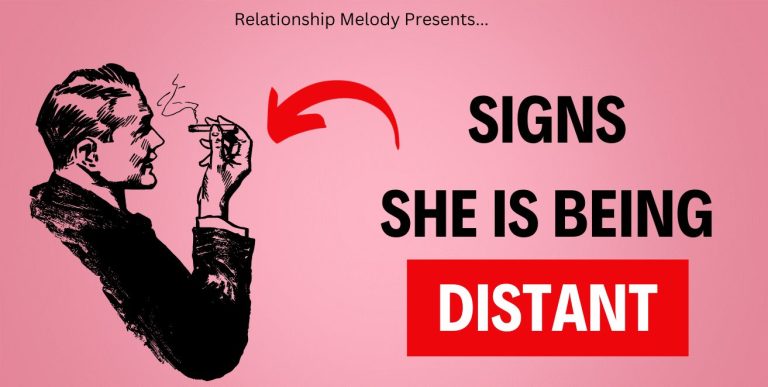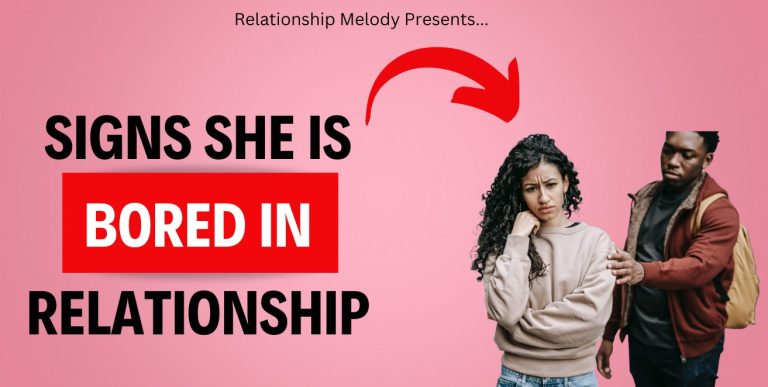25 Signs She Is Emotionally Detached
Emotional detachment can significantly impact relationships, causing feelings of loneliness and disconnection.
When someone is emotionally detached, they may struggle to connect on a deep emotional level, leading to challenges in building intimacy and fostering meaningful connections.
In this blog post, we will explore 25 signs that may indicate she is emotionally detached.
Recognizing these signs can help you better understand her emotional limitations and make informed decisions about your own well-being and relationship.
It’s important to approach the situation with empathy and open communication, as emotional detachment can stem from various underlying factors.
Let’s dive into these signs to gain insights into emotional detachment and its effects on relationships.
25 Signs She Is Emotionally Detached
These are the 25 signs that you need to know.
Sign #1: Lack of Emotional Responsiveness
She exhibits a general lack of emotional responsiveness, seeming indifferent or uninterested in others’ emotional experiences or needs.
Sign #2: Difficulty Expressing Feelings
She struggles to express her own feelings or experiences, often keeping them guarded or internalized.
Sign #3: Absence of Empathy
She shows minimal empathy or understanding toward others’ emotions and struggles, displaying a lack of emotional connection.
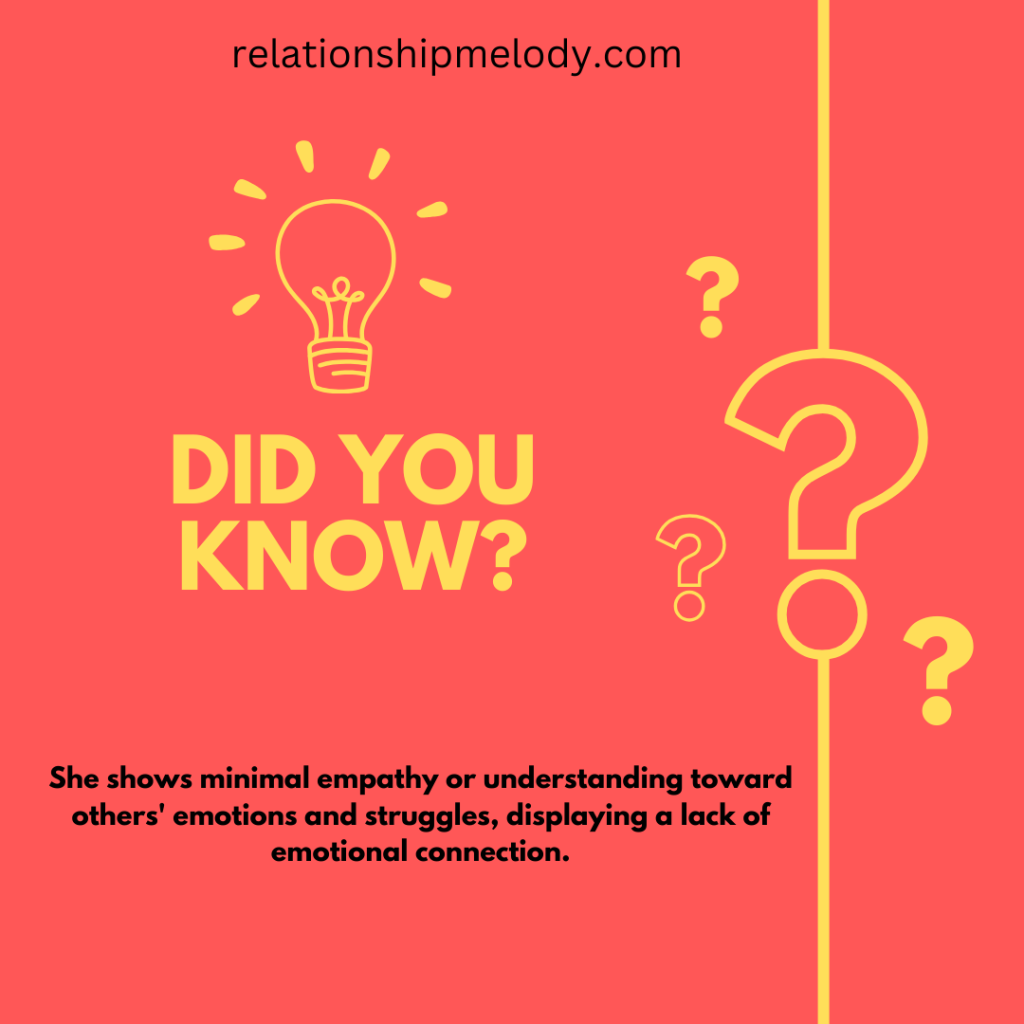
Sign #4: Avoidance of Emotional Topics
She consistently avoids discussing emotional topics or deflects conversations that require emotional depth, preferring to keep discussions at a surface level.
Sign #5: Limited Display of Affection
She demonstrates minimal affection or physical intimacy, rarely initiating or reciprocating displays of love, tenderness, or support.
Sign #6: Disinterest in Relationship Growth
She shows little interest in investing time and effort into the growth and development of the relationship, displaying a lack of emotional investment.
Sign #7: Limited Emotional Availability
She is emotionally unavailable and distant, creating a sense of emotional isolation within the relationship.
Sign #8: Inconsistent Communication
She exhibits inconsistent communication patterns, being unresponsive or sporadic in her interactions and failing to provide emotional support or engagement.
Sign #9: Unwillingness to Share Personal Experiences
She avoids sharing personal experiences, thoughts, or vulnerabilities, creating a sense of emotional distance and detachment.
Sign #10: Preference for Solitude
She frequently seeks solitude or alone time, prioritizing personal space over emotional connection and interaction.
Sign #11: Lack of Curiosity About Others
She shows little curiosity about others’ lives, experiences, or emotions, demonstrating disinterest in forming deeper connections.
Sign #12: Reluctance to Seek Support
She resists seeking support or help when faced with emotional challenges or difficulties, preferring to deal with them internally.
Sign #13: Difficulty Handling Conflict
She struggles to handle conflict or disagreements constructively, often opting for avoidance or emotional detachment as a coping mechanism.
Sign #14: Minimal Emotional Investment in Hobbies or Interests
She exhibits minimal emotional investment or passion in hobbies, interests, or activities, failing to derive joy or fulfillment from them.
Read more like this: Signs she is emotionally hurted
Sign #15: Limited Presence in Moments of Celebration or Crisis
She appears emotionally detached during moments of celebration or crisis, showing little engagement or investment in the experiences of others.
Sign #16: Disinterest in Emotional Intimacy
She avoids emotional intimacy, both physical and verbal, and may resist efforts to create deeper emotional connections.
Sign #17: Lack of Reciprocity in Emotional Support
She struggles to provide emotional support to others, rarely reciprocating the support and understanding she receives.
Sign #18: Tendency to Shut Down Emotionally
She frequently shuts down emotionally, becoming unresponsive or emotionally withdrawn when faced with difficult situations or conversations.
Sign #19: Preference for Superficial Interactions
She gravitates towards superficial interactions and relationships, avoiding deeper emotional connections and discussions.
Sign #20: Emotional Inaccessibility During Stressful Times
She becomes emotionally inaccessible or distant during times of stress or hardship, making it difficult to offer or receive emotional support.
Sign #21: Limited Interest in Others’ Lives
She displays a lack of interest in others’ lives, failing to ask questions or engage in meaningful conversations about their experiences or emotions.
Sign #22: Disengagement During Intimate Moments
She appears disengaged or detached during intimate moments, lacking emotional presence or connection.
Sign #23: Unresponsiveness to Emotional Triggers
She reacts minimally or not at all to emotional triggers, displaying an emotional numbness or detachment.
Sign #24: Tendency to Prioritize Logic Over Emotions
She consistently prioritizes logic and reason over emotional considerations, struggling to connect with and understand the emotional experiences of others.
Sign #25: Minimal Effort in Emotional Connection
She puts forth minimal effort in building emotional connections, failing to invest in nurturing and deepening relationships.
Conclusion
Identifying signs of emotional detachment in the woman you’re involved with is crucial for your emotional well-being and relationship satisfaction.
It’s important to approach the situation with empathy and understanding, recognizing that emotional detachment can stem from various underlying factors.
However, it’s essential to prioritize your own emotional needs and evaluate whether the relationship aligns with your desires for emotional connection and intimacy.
Open communication, professional guidance, and personal growth can aid in addressing emotional detachment, but it requires willingness and effort from both partners.
Remember, you deserve a relationship that fosters emotional depth, connection, and mutual understanding.
Liked Our Article? Feel Free To Support Us
Our Patreon Page: https://www.patreon.com

Welcome to Relationship Melody! Our website is dedicated to all things on relationships, dating, and love! We are passionate about helping you navigate the ups and downs of love, and our goal is to provide you with valuable insights and information that will make your journey toward a fulfilling relationship smoother and more enjoyable.

